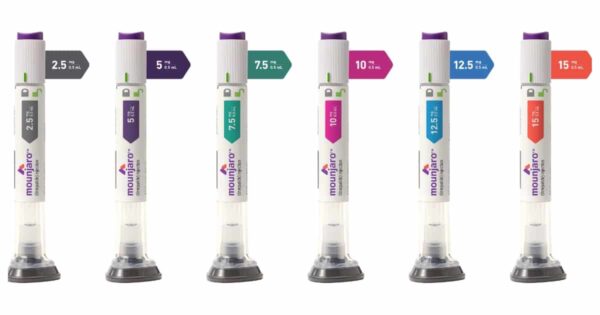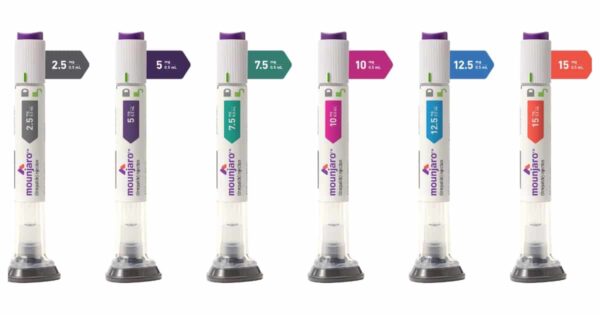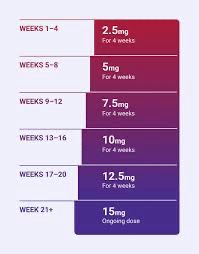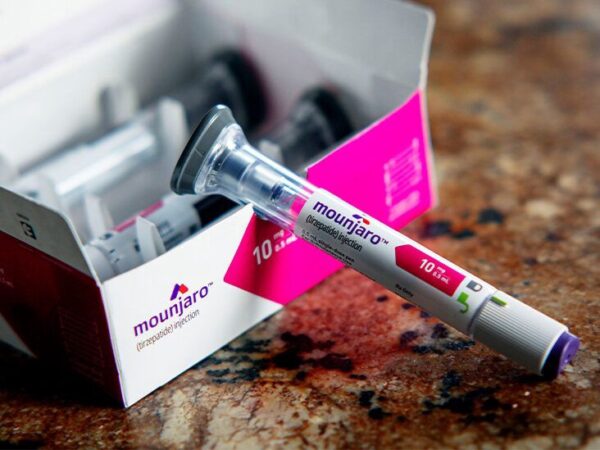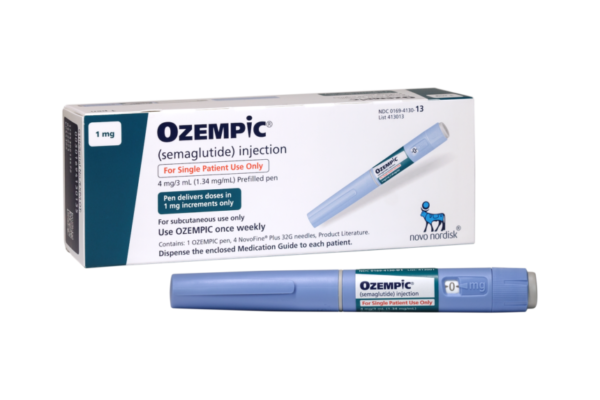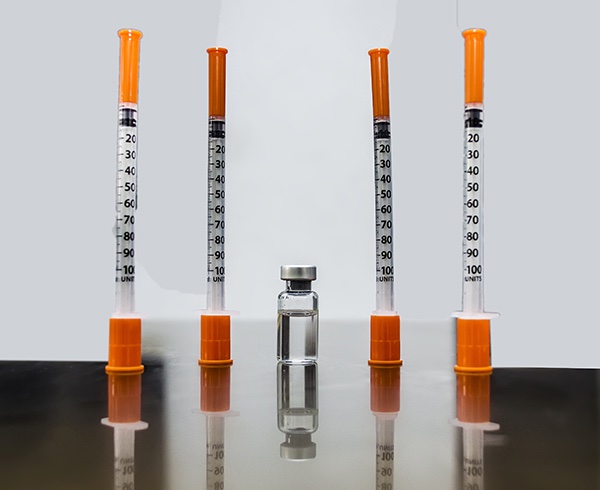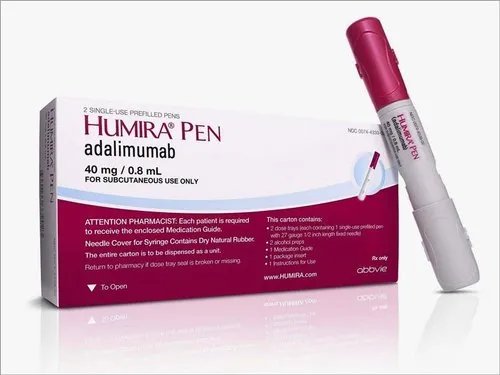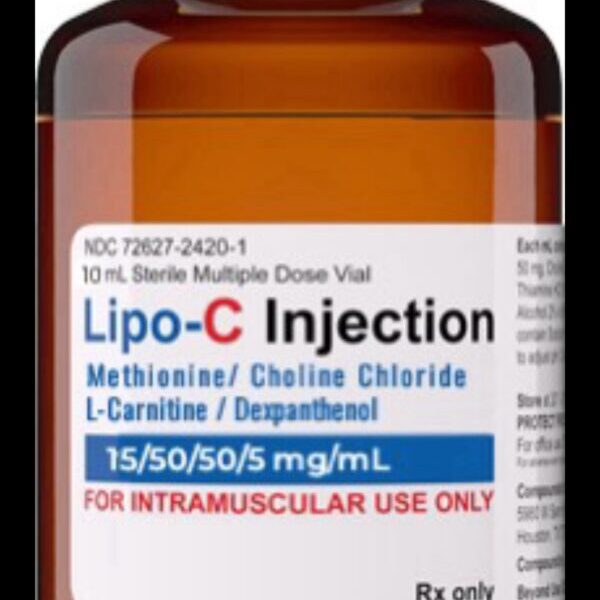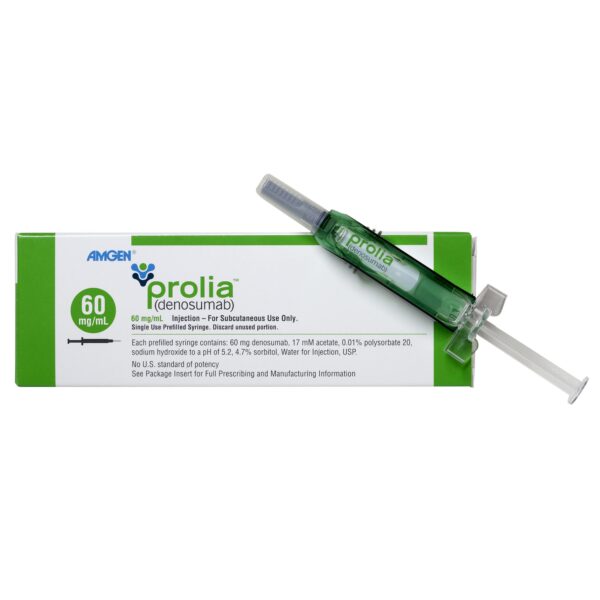Mounjaro (Tirzepatide) Description
Mounjaro (Tirzepatide) is used with a proper diet and exercise program to control high blood sugar in people with type 2 diabetes. Controlling high blood sugar helps prevent kidney damage, blindness, nerve problems, loss of limbs, and sexual function problems. It lowers blood sugar by causing the release of your body’s natural insulin and decreasing the amount of sugar your liver makes.
How to use
Read the Medication Guide and Instructions For Use provided by your pharmacist before you start using tirzepatide and each time you get a refill. Learn all preparation and usage instructions. If you have any questions, ask your doctor or pharmacist.
Before using, check this product visually for particles or discoloration. If either is present, do not use the liquid. Before injecting each dose, clean the injection site with rubbing alcohol. Change the injection site each week to lessen injury under the skin.
Inject this medication under the skin in the thigh, abdomen, or upper arm as directed by your doctor, usually once every 7 days. The dosage is based on your medical condition and response to treatment. To reduce your risk of side effects, your doctor may direct you to start this medication at a low dose and gradually increase your dose. Follow your doctor’s instructions carefully. This medication may be used with or without meals.
Use this medication regularly to get the most benefit from it. Remember to use it every 7 days. It may help to mark your calendar with a reminder. If needed, the day of weekly use may be changed as long as the time between two doses is at least 3 days. Carefully follow the medication treatment plan, meal plan, and exercise program your doctor has recommended.
Learn how to store and discard medical supplies safely.
Tell your doctor if your condition does not get better or if it gets worse (your blood sugar is too high or too low).
Side effects
Swelling/redness/itching at the injection site, tiredness, loss of appetite, nausea, vomiting, upset stomach, diarrhea, or constipation may occur. If any of these effects last or get worse, tell your doctor or pharmacist promptly.
Remember that this medication has been prescribed because your doctor has judged that the benefit to you is greater than the risk of side effects. Many people using this medication do not have serious side effects.
Tell your doctor right away if you have any serious side effects, including signs of kidney problems (such as change in the amount of urine), vision changes (such as decreased/blurred vision), signs of pancreatitis or gallbladder disease (such as nausea/vomiting that doesn’t stop, severe stomach/abdominal pain).
Although tirzepatide by itself usually does not cause low blood sugar (hypoglycemia), low blood sugar may occur if this drug is prescribed with other diabetes medications. Talk with your doctor or pharmacist about whether the dose(s) of your other diabetes medication(s) needs to be lowered. Drinking large quantities of alcohol, not getting enough calories from food, or doing unusually heavy exercise may also lead to low blood sugar. Symptoms may include sudden sweating, shaking, fast heartbeat, hunger, blurred vision, dizziness, headache, or tingling hands/feet. It is a good habit to carry glucose tablets or gel to treat low blood sugar. If you don’t have these reliable forms of glucose, rapidly raise your blood sugar by eating a quick source of sugar such as table sugar, honey, candy, or drinking a glass of fruit juice or non-diet soda. Check with your doctor or pharmacist to find out what you should do if you miss a meal.
Symptoms of high blood sugar (hyperglycemia) include increased thirst/urination. If these symptoms occur, tell your doctor right away. Your dosage may need to be increased.
A very serious allergic reaction to this drug is rare. However, get medical help right away if you notice any symptoms of a serious allergic reaction, including rash, itching/swelling (especially of the face/tongue/throat), severe dizziness, trouble breathing.
This is not a complete list of possible side effects. If you notice other effects not listed above, contact your doctor or pharmacist.

